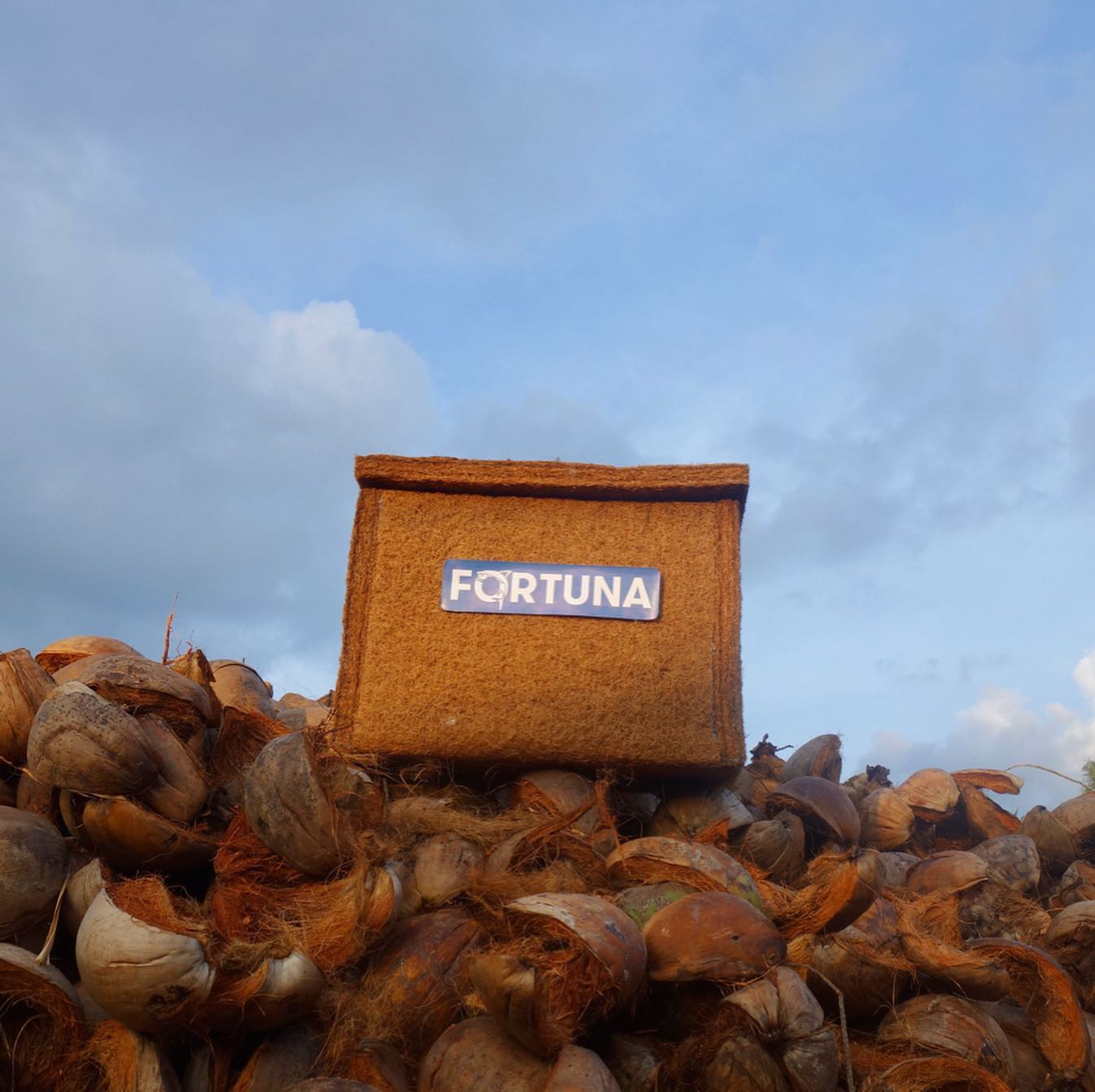Waste to win: How Filipino farmers, Fortuna Cools champion coconut waste upcycling
Turn waste into a win with coconuts' wonder
By Mat Richter
Producing one liter of coconut oil requires husking around seven kilograms of coconuts, which amounts to some 17 husks burned as waste. But for Filipino farmers, these fruits have a second life.
Fortuna Cools, an agri-tech startup, gathers nearly three truckloads of coconuts daily from over 250 small-scale farms in the Philippines. The coconut husks are turned into natural insulation that can replace plastic styrofoam, which often ends up choking our waterways.

From coconuts to coolers
Farmers turn coconuts into coolers by processing husks into fibers. The husks dry for up to a week for crushing and spinning to loosen the fibers. These are then stitched and compacted using a hydraulic press, creating the insulation panels.
Each cooler requires 37 coconut husks for insulation and 50 recycled plastic bottles for the outer material. The company said it can keep ice frozen for up to 48 hours.
Coconut fiber boasts numerous trapped air pockets, which naturally harness its insulating capacity. These fibers help protect the fruit's interior from the sun. With the country being the second-largest coconut producer globally, coconuts show huge potential to keep our food fresh while contributing to the planet’s well-being.

Helping keep the Earth cool
Aiming to help coconut farmers find a suitable replacement for plastic, Fortuna Cools sells its product as “the modern, sustainable cooler built to last years, not millennia.”
"We're trying to replace as much plastic foam with natural fiber as we possibly can and benefit thousands of coconut farmers in the process," said Fortuna Cools CEO and co-founder David Cutler.
The company’s coconut husks are sourced from farmers in the central Philippines and processed in the rural Bicol region.
“We launched Nutshell Coolers to show that there’s real demand for more sustainable materials and more meaningful outdoor gear, and we knew it would take a special product to do so,” he added.
The story behind farmers’ efforts and the company’s eco-initiatives highlight the untapped potential for sustainability in seemingly mundane resources like coconut husks.
Engaging in fruitful discussions about sustainability may not be as instantly “rewarding” as playing mobile games or surfing TikTok, but it is a needed step to help our only home win in its fight against environmental degradation.